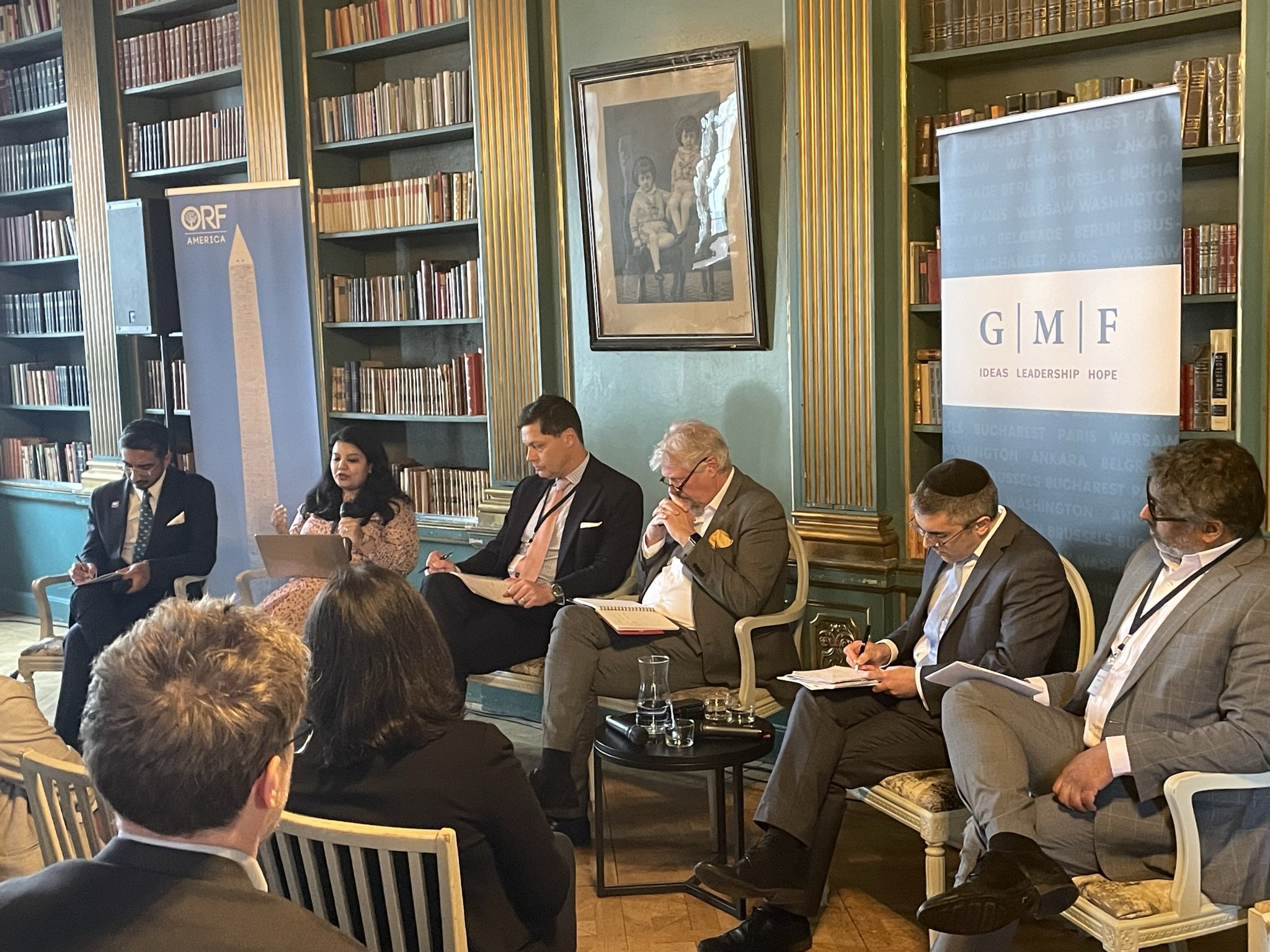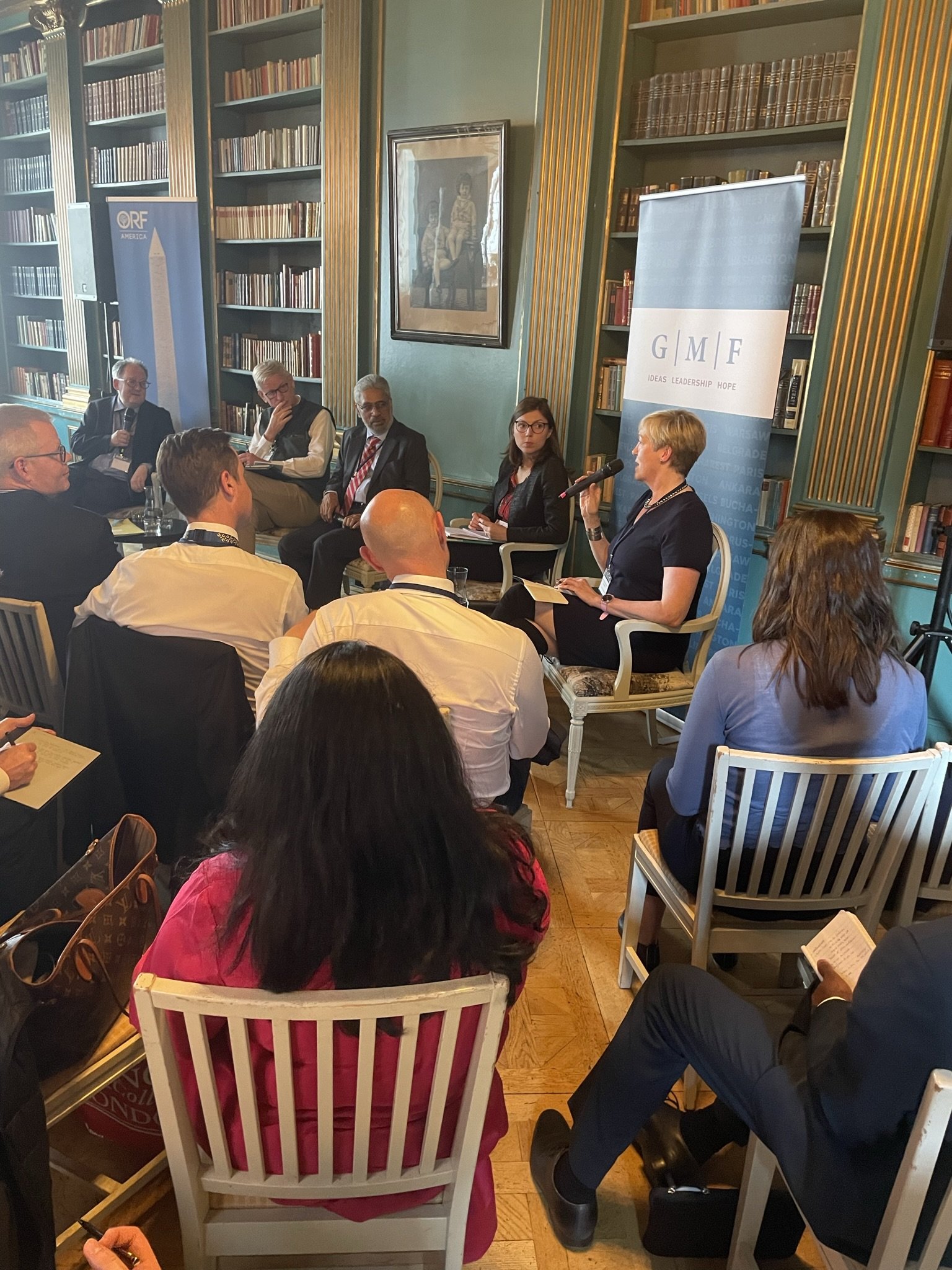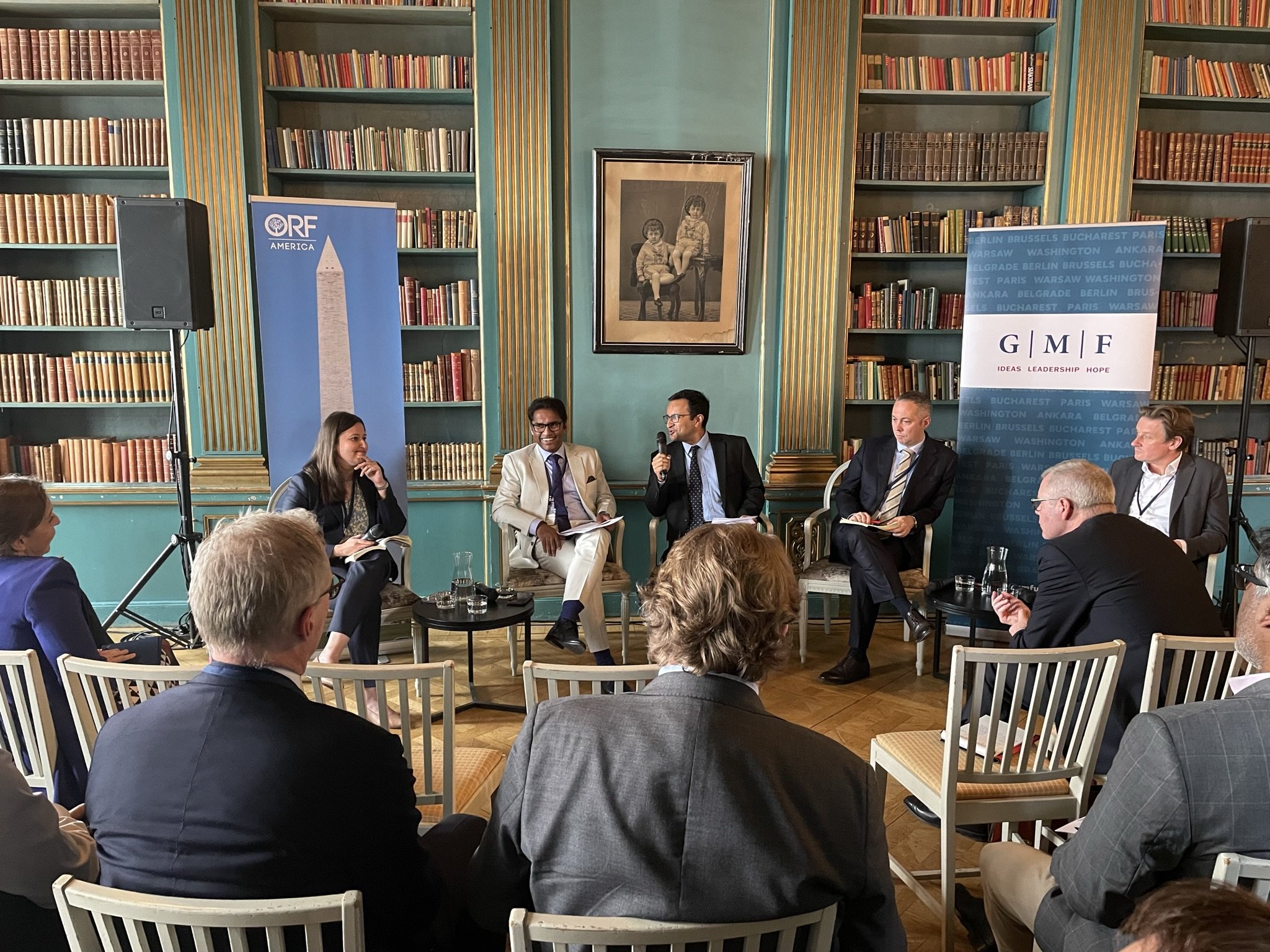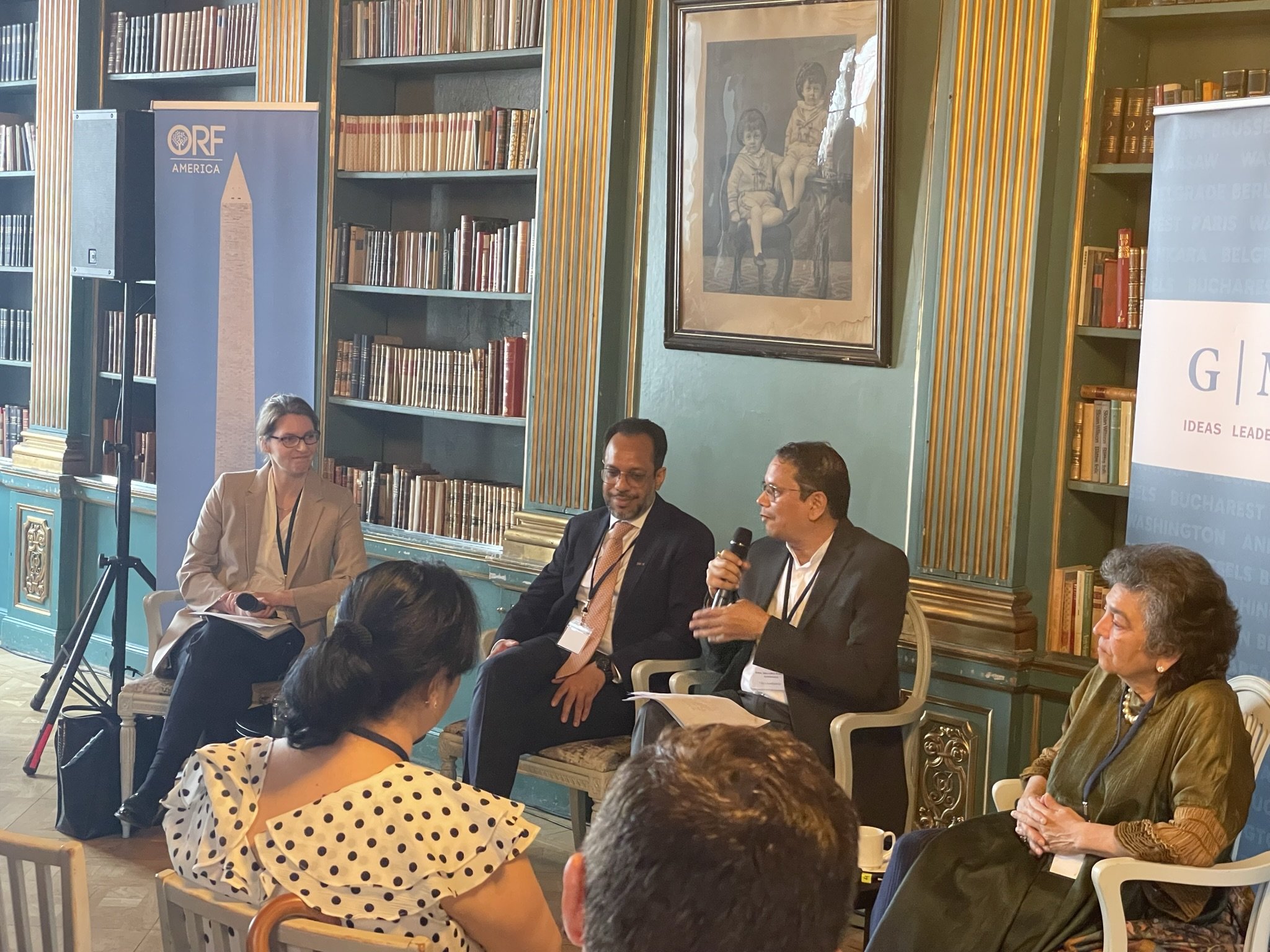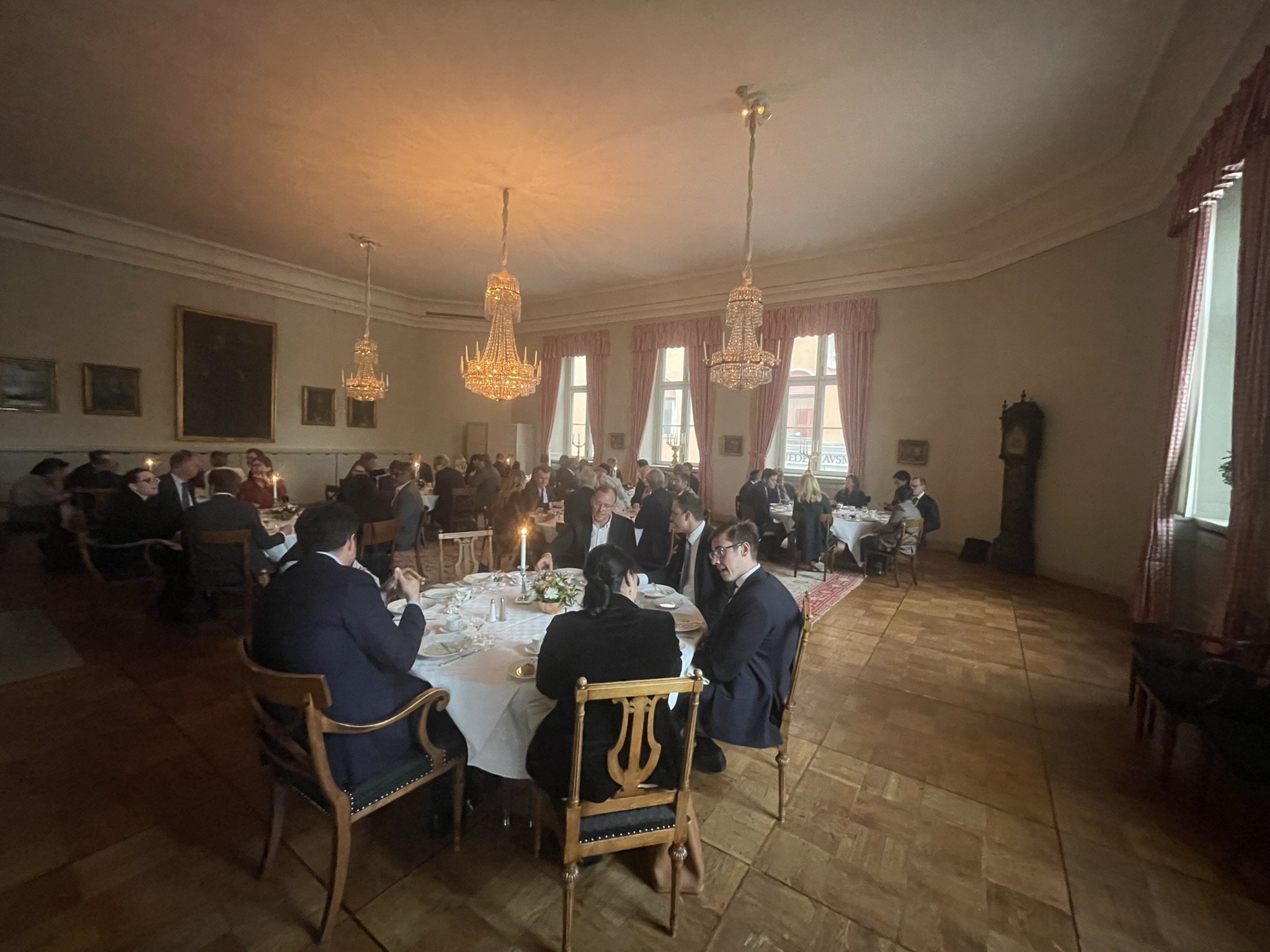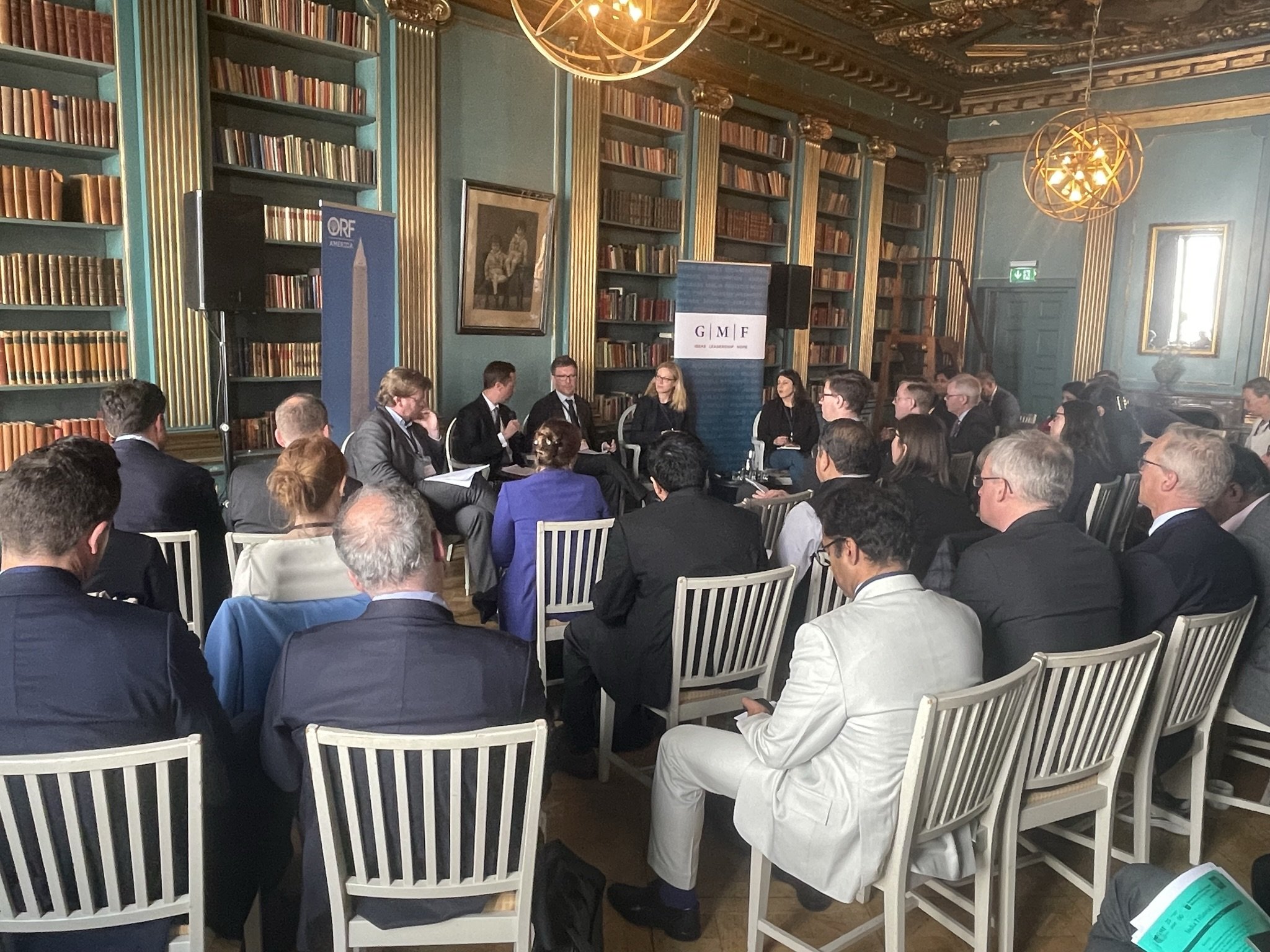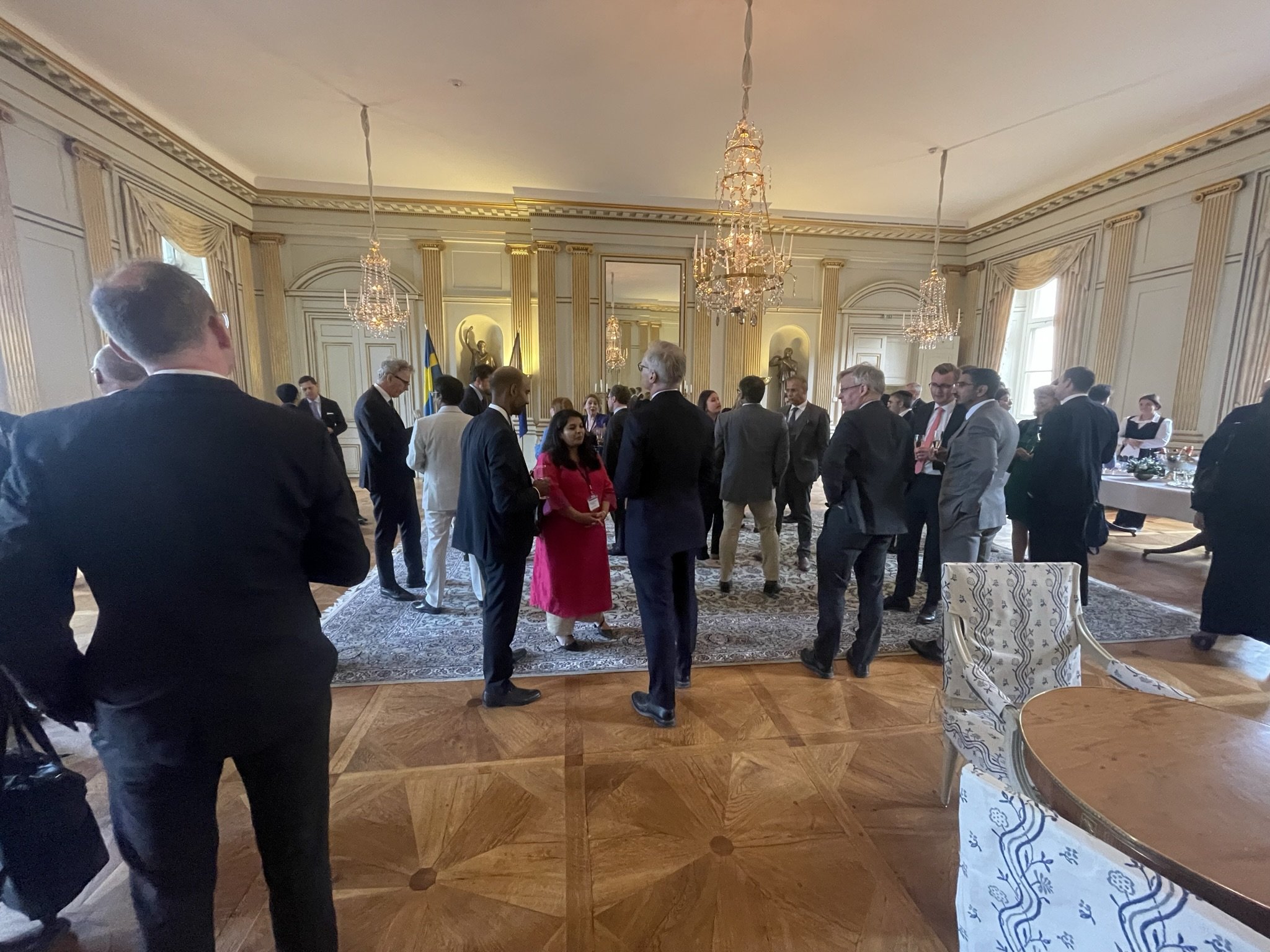Background
ORF America along with the German Marshall Fund of the United States and the Ministry of Foreign Affairs, Sweden convened the 22nd India Trilateral Forum (ITF) in Stockholm. Bringing together over 40 participants from eight different countries for conversations and discussions on Transatlantic and Indo-Pacific policy. Since its inception in the late 2000s, ITF has become a key Track 1.5 initiative for government and non-government policy makers from Europe, India and the U.S. to discuss issues of common interest and identify policy areas and regions for strengthening trilateral cooperation.
Discussion Summary
The 22nd ITF—like previous editions—occurred in the backdrop of interesting policy trends in Europe and the Indo-Pacific. Including the ongoing Ukraine war, U.S.-China tensions, India’s hosting of the G-20 and Shanghai Cooperation Organization summits, and other bilateral developments on India-U.S., India-EU, India-Russia, Russia-China, and EU-China relations.
In this context, there were eight panel discussions spread over two days, interspersed with opportunities for side conversations and discussions too. The panels on day 1 were focused on strategic trends; EU’s China policy, India-Russia-China relations and EU and NATO engagement in the Indo-Pacific region. Thereafter, discussions on Day 2 were geared towards specific issues namely India’s G20 Presidency agenda, defense industrial cooperation and trade, technology and supply chains. The convergence of Indian, American and European perspectives were clearly discernible in areas like economic security, trade diversification, emerging technologies, and defense industrial cooperation. Participants reiterated the need to be “ambitious” and implement “meaningful cooperation” on all these areas.
Even on geopolitics, participants shared similar threat perceptions on China and highlighted the growing levels of comfort between all three governments to exchange information, foster trust, and build “habits of cooperation” to meet this challenge. Participants particularly unpacked the speech on China policy by the European Commission President Ursula Von Der Leyen and discussed perhaps that there is more clarity and coordinated messaging on EU’s China policy than acknowledged. Another facet of transatlantic engagement is that of NATO’s partnerships in the Indo-Pacific region; participants made a perceptive case for why NATO and India should engage each other and that too, on their own merits.
The present and future trajectory of Russia-China relations were also discussed substantively; these included the increasing asymmetry of Russian dependence on China for trade, military, technical and diplomatic support. While some Europeans concluded that this “dependency” will only increase further thus diminishing Russia’s “agency” in other foreign policy issues, some Indian assessments were more sober. Opining that Russia will seek to accordingly alter its “terms of relations” with other countries including India. Nonetheless, India will seek to further intensify defense industrial cooperation with like-minded countries to reduce its dependence on Russian military equipment. American perspectives in this regard are optimistic about how India has the “right ingredients” for improving its defense manufacturing and innovation. Although to that end, India would need to overcome perennial bureaucratic and budgetary limitations. European views, including French and British, outline the high “political will” for capability-based defense cooperation with India.
The ongoing Ukraine conflict among others will certainly be a backdrop as India hosts the G20 summit in September. The discussion then on India’s G20 agenda also highlighted the importance of sustainable development goals, clean energy transitions, climate finance, digital public infrastructure, and women’s empowerment. Participants discussed efforts to synchronize the G-20 Sherpa and Finance tracks to match ambitions with finance, appropriately.
Across these discussions, several issues were expounded on that will impinge on U.S., India and EU foreign policy priorities: harmonizing economic and national security, more disciplined European messaging vis-à-vis China, reliable supply chains, the U.S.-India Initiative on Critical and Emerging Technologies (iCET), the U.S.-EU and India-EU Trade and Technology Councils (TTCs), India-Nordic engagement and a potential Taiwan Straits contingency. Given the convergence of views and perspectives---notwithstanding minor differences—all these issues can further amplify European, Indian and American trilateral cooperation.
